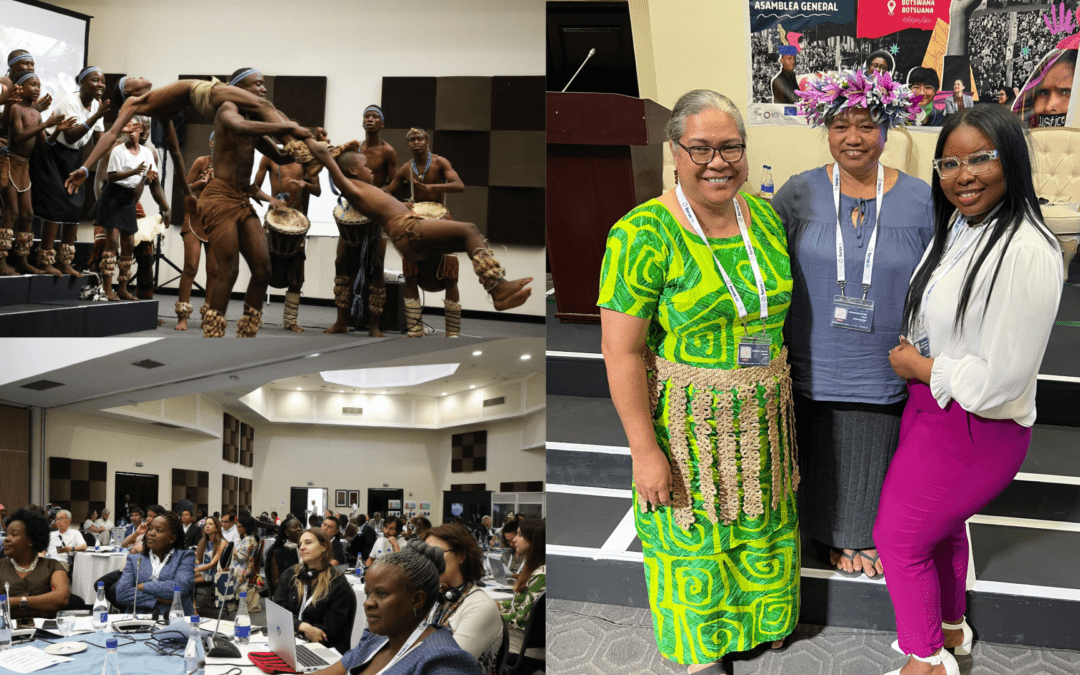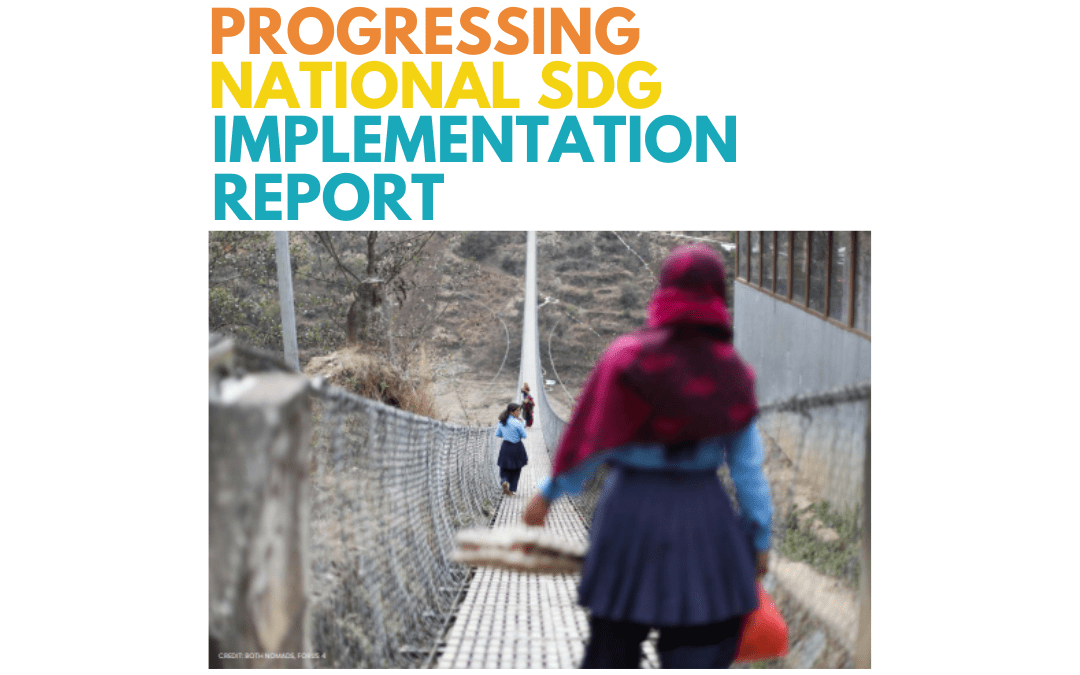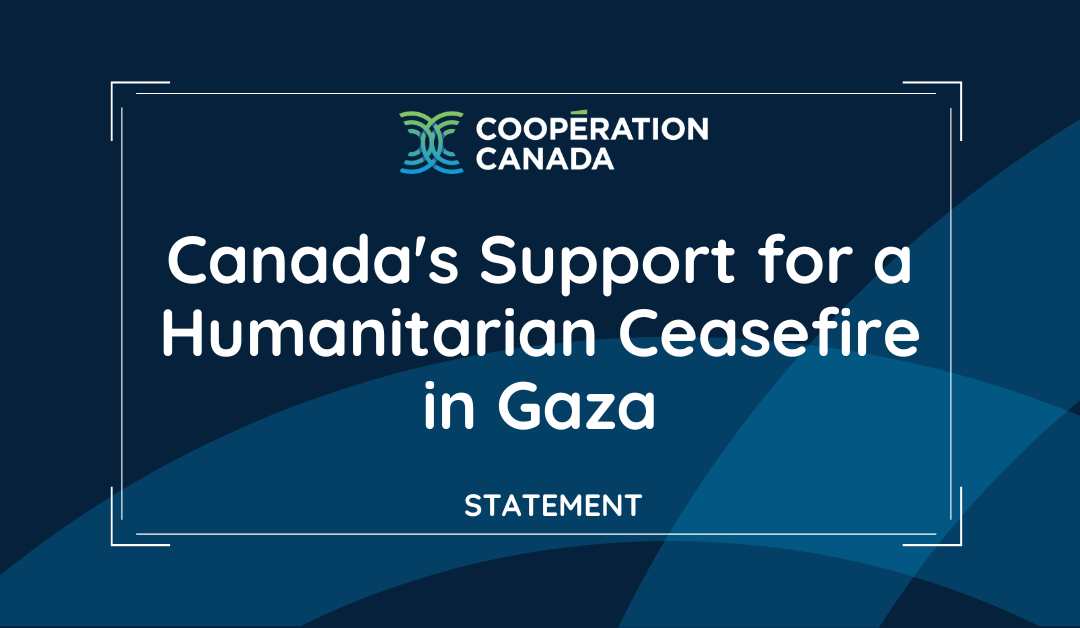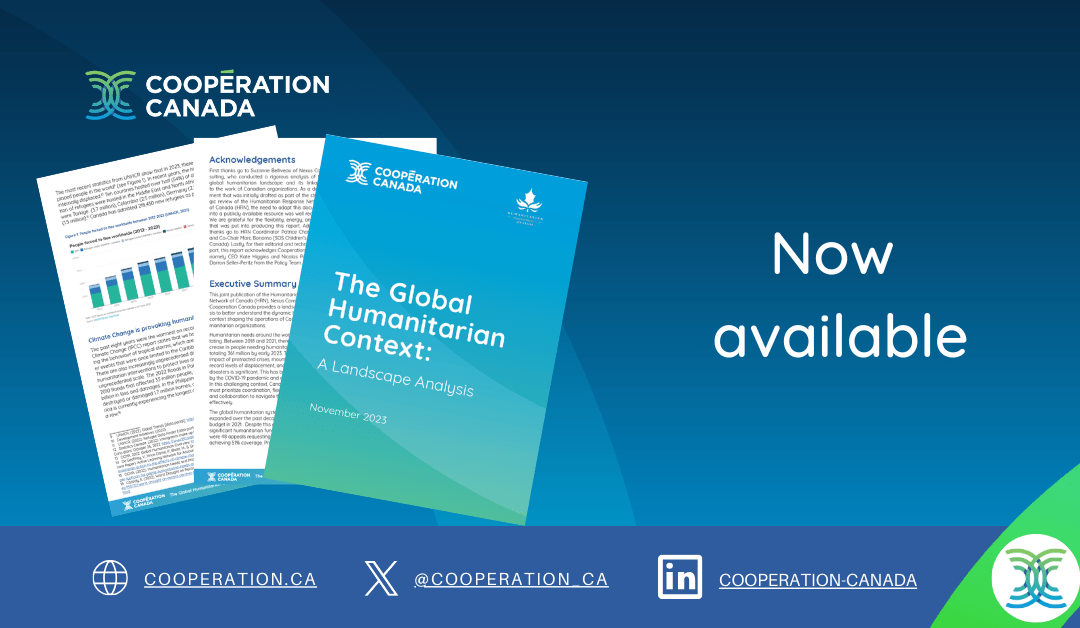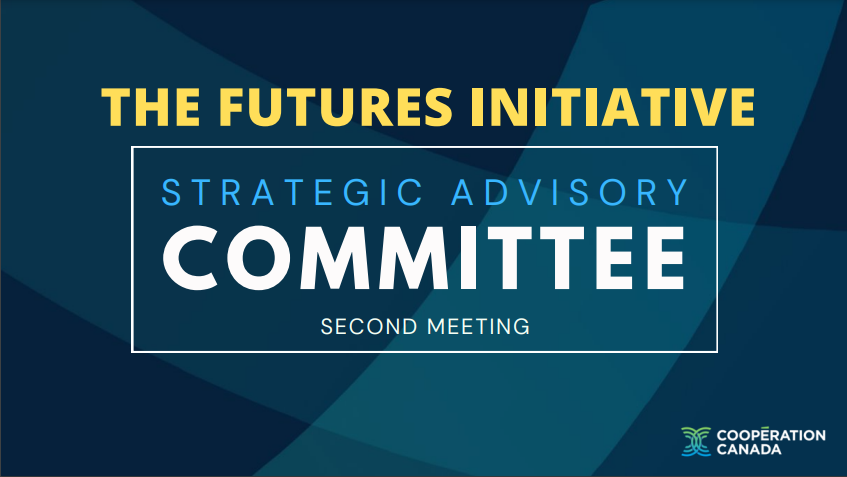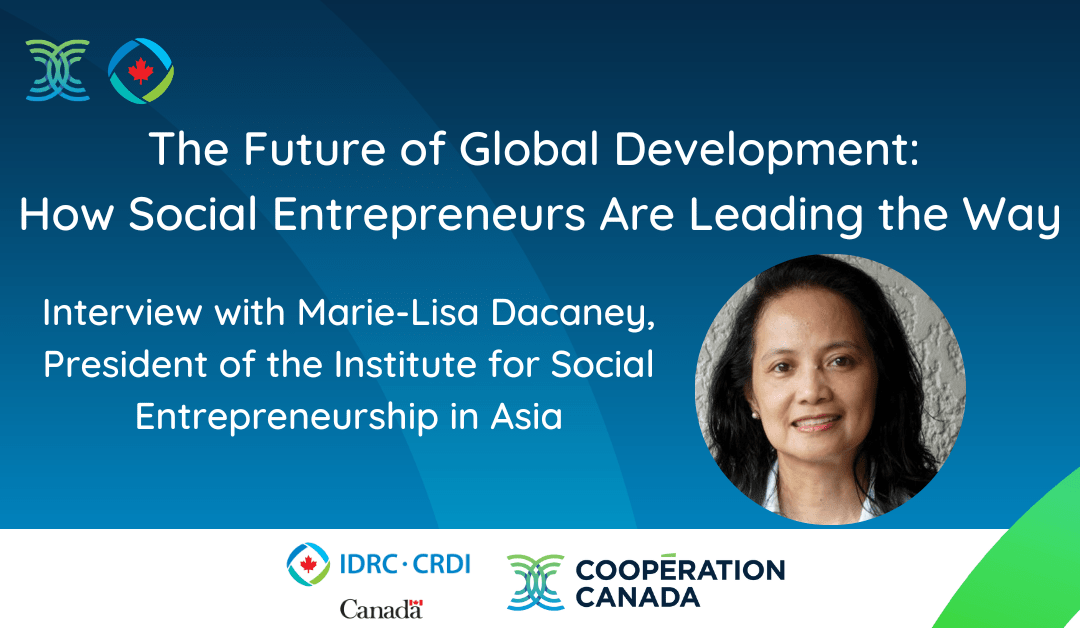
The Future of Global Development: How Social Entrepreneurs Are Leading the Way
Interview with Marie-Lisa Dacaney, President of the Institute for Social Entrepreneurship in Asia
In an era where global challenges are becoming increasingly complex and interconnected, traditional models of development and cooperation are evolving. That is the conviction behind our Landscape Analysis of the International Cooperation Sector, a report highlighting emerging trends and transformations underway in global cooperation.
One of the most promising trends gaining momentum in this space, and building upon the insights from our report, is the rise of social entrepreneurship. Defined by its dual mission of financial sustainability and social impact, social entrepreneurship is reshaping how we think about solving the world’s most pressing issues.
To delve deeper into this emerging trend, Cooperation Canada’s Research and Program Officer, Andy Ouedraogo, interviews Marie-Lisa Dacanay, President of the Institute for Social Entrepreneurship in Asia. Marie-Lisa, who also serves on the Strategic Advisory Committee of the Global Cooperation Futures Initiative, led by Cooperation Canada and funded by the International Development Research Centre (IDRC), provides valuable insights on the subject.
How significant is Social Entrepreneurship for Global Development Cooperation and how prominent is this trend?
The Global State of Social Enterprise report (April 2024) estimates 10 million social enterprises worldwide, generating USD 2 trillion annually and creating 200 million jobs, representing about 3% of businesses globally. In Asia, social enterprises make up a larger share, such as in the Philippines, where they constitute over 15% of enterprises. Social enterprises contribute to all Sustainable Development Goals, particularly by reducing poverty and inequality. Notably, half are led by women, compared to just one in five conventional businesses. These enterprises are essential in empowering women in agriculture and the informal economy, where they have traditionally been invisible and excluded. Social entrepreneurship plays a key role in global development, transforming the lives and livelihoods of the marginalized.
What are some key examples of success stories of social entrepreneurship initiatives in Asia contributing to development outcomes?
Grameen Bank pioneered microfinance, driving global financial inclusion. However, lesser-known success stories are also inspiring social entrepreneurship platforms in Asia. In partnership with the Association of Progressive Communications (APC), ISEA leads a platform focused on Technological Innovations for Sustainable Development. This platform promotes community-centered connectivity initiatives, which act as social enterprises in the ICT sector, aiming to bridge the digital divide and connect underserved communities across the region.
A Community Connectivity Initiative
The Common Room Networks Foundation, Kasepuhan Ciptagelar Village Government, and Awinet ISP launched a community-owned internet infrastructure connecting 43 hamlets and 3,700 people by 2024. Supported by APC, the initiative increased women’s internet use from 30% to 50%, supported remote education, and disaster preparedness during COVID-19. It also subsidized internet for eight schools, created jobs and fostered local digital skills development, empowering the community to sustain and expand operations while using the internet to improve livelihoods.
Transformational Partnerships and Women’s Economic Empowerment in Agricultural Value Chains
ISEA co-convenes the Women’s Empowerment, Livelihoods and Food platform, promoting Benchmarks and Guidelines for Transformational Partnerships in Agricultural Value Chains. These standards, based on best practices from Southeast Asian social enterprises, improve small-scale producers’ livelihoods and empower women. The Guidelines offer policies for governments to support these benchmarks across agricultural value chains.
The Alter Trade Initiative
The Alter Trade Initiative demonstrates an empowerment model for transforming about 800 women and men agricultural workers turned agrarian reform beneficiaries in sugar plantations to become farmer-entrepreneurs and leaders and members of cooperatives that over time diversified their crops and sources of income, increased their assets and capacities to improve their means of living and moved a majority of their households out of poverty.
The Bote Central and PCA Initiative
This initiative empowered over 5,000 farmers, women, and youth to engage in sustainable coffee production and set up 50+ community-based coffee enterprises. Through PCA’s Coffee for Life Program, they developed and marketed their own brands, benefiting from a greater share of the coffee value chain’s wealth.
How do you see social entrepreneurship shaping the future landscape of global development cooperation, and what challenges or barriers do social entrepreneurs face in driving positive change?
The 2023 SDG Report highlights that 85% of the Sustainable Development Goals (SDGs) are off track, stagnating, or regressing, placing the 2030 Agenda in jeopardy. Social entrepreneurship could be a key strategy to accelerate progress, but its potential remains under-recognized by many governments, especially in developing countries. Global development cooperation can play a vital role in scaling the impact of social enterprises by addressing challenges like inadequate financing and the lack of supportive policies.
A two-pronged approach is proposed: first, direct investment in social enterprises to scale and replicate successful initiatives, and second, partnering with committed governments to create policies and programs that support and incentivize the sector. Asia, with its existing multistakeholder platforms and interest from agencies like the United Nations Economic and Social Commission for Asia and the Pacific, could serve as a pilot region for this global development cooperation initiative, helping to mainstream social entrepreneurship as a transformative strategy for achieving the SDGs.
As social entrepreneurship continues to gain traction, its potential to reshape global development cooperation is undeniable. By addressing systemic challenges and empowering marginalized communities, it offers a transformative path forward. However, to fully unlock its impact, governments, development organizations, and private sector actors must work together to create supportive environments and scale successful initiatives. The future of global cooperation may well depend on embracing these innovative approaches to tackle our most pressing global challenges.


